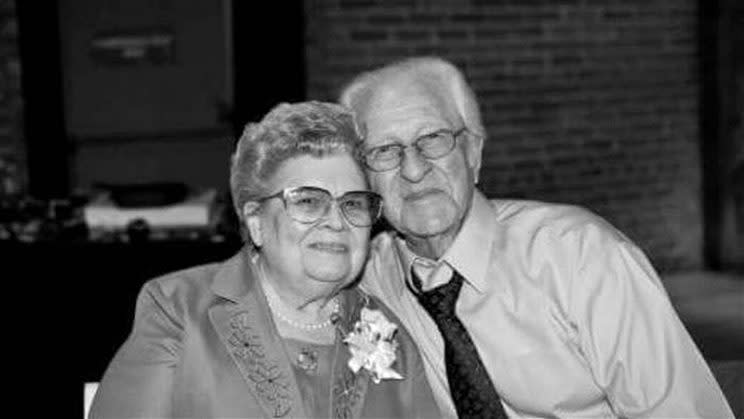After 63 Years of Marriage, Couple Couldn't Live Without Each Other

After 63 years of marriage, Delores and Trent Winstead’s bond was unquestionable. So much so that the couple quite literally couldn’t live without each other.
The 83-year-old Delores and 88-year-old Trent had both been in good health and living independently until November, when Trent suffered a fall that spurred a hospital visit. While in the hospital, the couple learned that Trent was suffering renal failure.
When Trent and Delores’s daughter, Sheryl, told her mother upon learning this news, “Mom, he could go any second,” Delores replied, “I just don’t know how I could live without him.”
The next day, while sitting by Trent’s bedside, Delores died after a blood vessel burst in her brain.
When the family told Trent of his wife’s death, his heart — and not his kidneys, which his physician thought would recover with an additional few dialysis treatments — began to fail. He died the following day.
The story of the Winsteads seemingly dying of broken hearts at the thought of living without one another echoes the story of celebrity daughter-mother duo Carrie Fisher and Debbie Reynolds, both of whom died earlier this week. The 84-year old Reynolds died the very next day after her daughter’s death; Fisher had suffered a massive heart attack earlier in the week. Shortly before her fatal stroke, Reynolds reportedly told her son, Todd, “I want to be with Carrie.” Reynolds and her son were in the midst of making Fisher’s funeral arrangements at the time.
And medical experts attest to the fact that stories like this aren’t just the stuff of urban legend, but rather that you can indeed die of a broken heart.
Jennifer H. Haythe, MD, assistant professor of medicine in the division of cardiology at the Center for Advanced Cardiac Care at Columbia University Medical Center and co-director of the Women’s Center for Cardiovascular Health, told Yahoo Beauty earlier this week that the condition, known as stress-induced cardiomyopathy or takotsubo cardiomyopathy, is more prevalent in women and occurs after an unusually emotional event.
Haythe explains that on an electrocardiogram (EKG), a test that measures the electrical activity of the heart, patients suffering from what is known colloquially as broken heart syndrome appear to be having a heart attack. They also appear to be having a heart attack on an echocardiogram, or ultrasound of the heart.
And yet, patients with broken heart syndrome are not in fact having a clinical heart attack, as there are no blockages of any of the heart’s arteries. It is speculated that broken heart syndrome is likely caused by a surge in stress hormones that some people experience during times of emotional duress ultimately causing damage to the heart and resulting in this heart-attack-like condition.
“The take-home message is there’s clearly an interplay between a person’s emotional state and their overall wellness, particularly with the cardiovascular system,” Haythe told Yahoo Beauty. “Our emotions are connected to our bodies. It’s a continuum — it cannot be separated.”
Follow us on Instagram, Facebook, and Pinterest for nonstop inspiration delivered fresh to your feed, every day.

